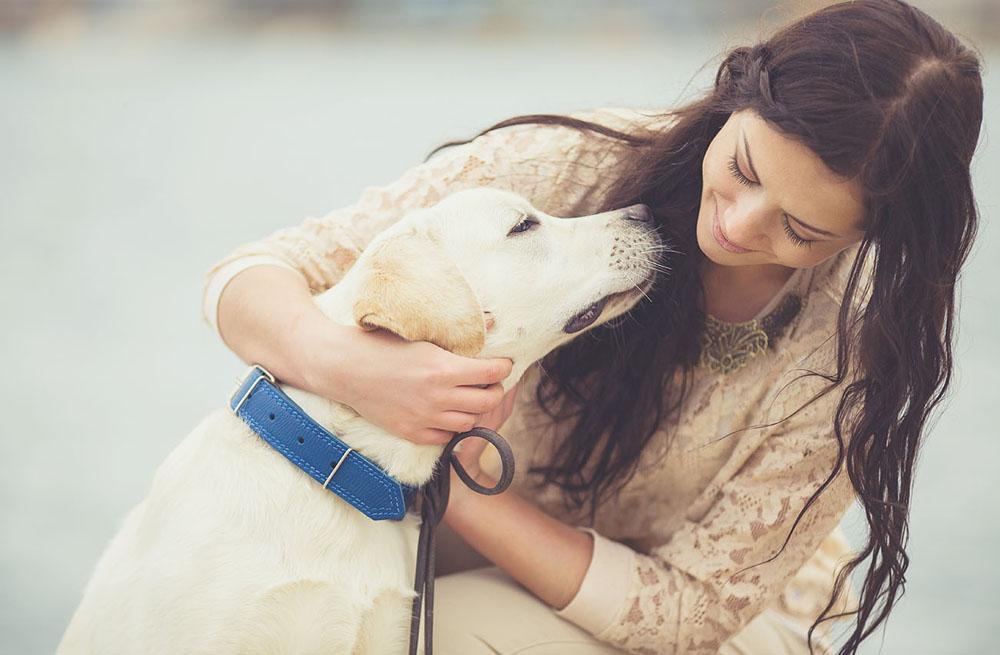All About Dog Barking: What You Need to Know
- posted: Aug. 14, 2017
All About Dog Barking Explained by Your Etobicoke Veterinarian
Dog barking is indicative of someone or something encroaching a dog's personal space, or territory. That's why most dogs bark at people walking or driving by their home. Some dogs have a large personal space surrounding them (several feet or more) while other dogs may not bark until you get within arm's length. Barking should not be discouraged since it is the primary way your dog communicates with the world. When dog barking becomes problematic, your veterinarian in Etobicoke offers tips for training your dog to bark only when they have something important to tell you.

Why Dogs Bark
In addition to guarding their territory, dog's bark for a variety of reasons:
Alarm howling and barking--seeing or hearing something may cause some dogs to feel alarmed or slightly fearful. Dogs engaged in alarm barking often pounce or edge forward a few inches following each bark.
Obsessive-compulsive barking--dogs that bark repetitively without missing a breath are typically dogs that run back and forth, back and forth along their fence line or chase cars up and down the street. They may also pace in their home or seem easily startled. Your Etobicoke veterinarian recommends behavioral therapy if your dog is diagnosed as an obsessive-compulsive barker.
"I am frustrated, bored and/or unhappy" barking--you can't blame dogs that are kept in crates or locked in a room when their owners are not at home for barking out of sheer frustration. Dogs need attention, love, an interactive environment and plenty of fresh air to maintain their physical and psychological health and well-being.
Barking when other dogs bark--dogs are inherently pack-animals that rely on other members of the pack to relay vital information. Some dogs, especially herding dogs, may bark upon hearing another dog bark to send messages to other dogs.
Deafness, dementia and other health issues--older dogs that are hearing impaired may bark randomly simply because they cannot hear themselves bark. Walking around aimlessly and barking at the ground or at nothing may be a sign of disorientation due to age-related dementia.
Correcting Bad Barking Habits
To stop bad barking habits, your veterinarian in Etobicoke suggests initially scheduling your dog for a complete wellness check to determine if an undetected health problem is causing him to bark unnecessarily. Other tips for correcting dogs when they bark repeatedly include:
- Making sure your dog has access to food, water, and comfortable resting areas
- Not leaving your dog alone for long hours in your back yard. They need companionship just as much as humans do.
- Providing adequate levels of physical activity, chew toys/bones and frequent changes of scenery. Dogs get bored with the same, old yard day after day. Take your dog for walks at least twice a week.
- Turning the radio or TV on at low volume when you leave your dog at home to cover sounds that may cause him to "alarm" bark.
- Gently place your hand around your dog's muzzle when he/she barks and saying "no" or "quiet" firmly. Consistency is key to making this tactic work.
- Enrolling your dog in a behavioral or training class. Trained dogs seldom indulge in "bad" barking because of their increased level of self-control and confidence.
If you have a problem barker, schedule an appointment with our Etobicoke veterinarian today by calling 416-245-8805.
Location
Find us on the map
Office Hours
8:00 am - 9:00 pm
8:00 am - 9:00 pm
8:00 am - 9:00 pm
8:00 am - 9:00 pm
8:00 am - 9:00 pm
9:00 am - 5:00 pm
Closed

